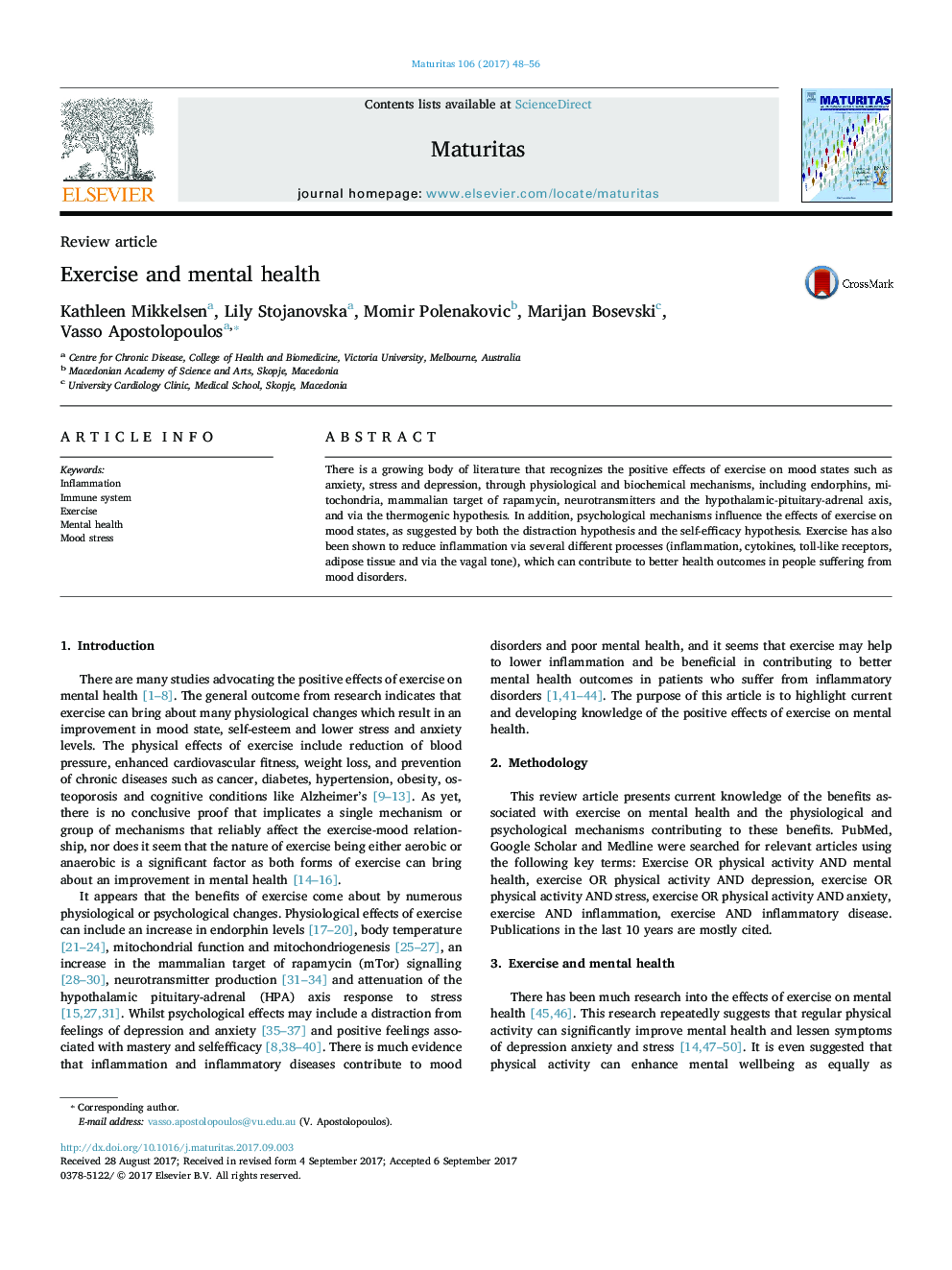| Article ID | Journal | Published Year | Pages | File Type |
|---|---|---|---|---|
| 5503313 | Maturitas | 2017 | 9 Pages |
Abstract
There is a growing body of literature that recognizes the positive effects of exercise on mood states such as anxiety, stress and depression, through physiological and biochemical mechanisms, including endorphins, mitochondria, mammalian target of rapamycin, neurotransmitters and the hypothalamic-pituitary-adrenal axis, and via the thermogenic hypothesis. In addition, psychological mechanisms influence the effects of exercise on mood states, as suggested by both the distraction hypothesis and the self-efficacy hypothesis. Exercise has also been shown to reduce inflammation via several different processes (inflammation, cytokines, toll-like receptors, adipose tissue and via the vagal tone), which can contribute to better health outcomes in people suffering from mood disorders.
Related Topics
Life Sciences
Biochemistry, Genetics and Molecular Biology
Ageing
Authors
Kathleen Mikkelsen, Lily Stojanovska, Momir Polenakovic, Marijan Bosevski, Vasso Apostolopoulos,
